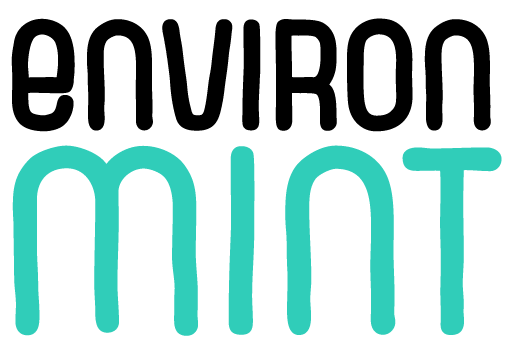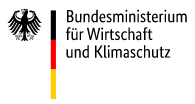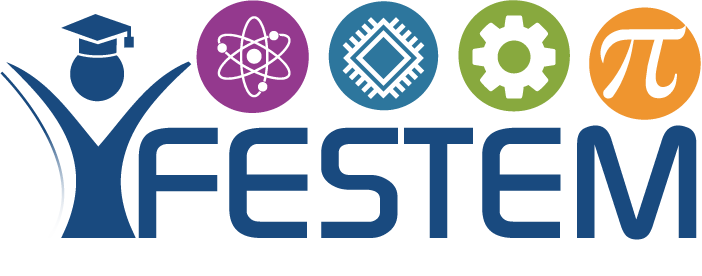EnvironMINT

EnvironMINT is an application-oriented research project that investigates how young people can get excited about STEM topics (science, technology, engineering, and mathmatics) in a creative way. Our goal is to develop a concept that allows children and young people to engage with STEM topics outside of school. The focus is on so-called maker activities, in which not only innovative and sustainable products, but also artistic works are created. This takes place in Maker Spaces or Fab Labs – learning spaces and workshops that provide access to tools, materials and knowledge, thus creating free space for creative work. There, participants can use digital materials and tools such as 3D printers, e-textiles, single-board computers, but also traditional hand tools to realize their own ideas in a self-determined way. In order to encourage children and young people to participate more intensively in Making activities and to ensure that they become part of their everyday world in the long term, it is helpful to have concepts that involve not only the young people but also their friends, parents, teachers and people at Fab Labs. The EnvironMINT project aims to develop such concepts and actively involve the aforementioned groups of people. At the same time, the topic of sustainability is to play an important role, whether through repairs or in the form of upcycling. In this way, abstract STEM knowledge is to be linked to a topic that is of great individual importance to many young people.
Runtime:
Funding: Bunderministerium für Bildung und Forschung
Contact: Marios Mouratidis, M.Sc.

EDIH – European Digital Innovation Hub Südwestfalen

As an industrial region, South Westphalia has a strong focus on small and medium-sized enterprises (SMEs). More than 150 so-called “hidden champions”, i.e. companies that are among the European and global market leaders in niche markets, can be found in South Westphalia. The economic success of the SMEs in South Westphalia is based on the know-how of the employees that has grown over decades.
Within the framework of the European Digital Innovation Hub (EDIH) South Westphalia, SMEs are supported in how they can promote the product-specific know-how of specialists and managers, through the use and development of sound socio-informatic digitalisation competences. The focus is on the design of human-centred artificial intelligence, employee-based cyber security as well as socio-technical assistance systems. The EDIH will support SMEs in the transformation process in cooperation with the social partners in order to maintain innovative strength in the long term. Employees will be closely involved and trained in the creation of new concepts.
The EDIH Südwestfalen consists of a strong association of experienced partners. In addition to the South Westphalia University of Applied Sciences and the Ruhr University Bochum, the Gesellschaft zur Wirtschafts- und Strukturförderung im Märkischen Kreis mbH, the gemeinnützige Gesellschaft für digitalisierte und nachhaltige Zusammenarbeit mbH (DNZ) from Siegen, as well as the HAGEN.WIRTSCHAFTSENTWICKLUNG GmbH are also involved as partners.
Laufzeit: 2022-2025
Förderung: European Digital Innovation Hubs within the framework of Digitales Europa Programme of the European Union – MWIKE
Ansprechpartner: Marios Mouratidis, M. Sc.; Enzo Frenker-Hackfort, M.Sc

Mittelstand-Digital Zentrum Ländliche Regionen

The Mittelstand-Digital Zentrum Ländliche Regionen supports small and medium-sized enterprises in rural regions in mastering the challenge of digitization in a dialog based on social partnership. The focus is always on the employees. With a wide range of services, the needs and challenges of SMEs in rural regions are specifically addressed, with the aim of supporting them in becoming future-proof and resilient.
The team shows small and medium-sized enterprises, among other things, various assistance systems and possibilities of new, digital technology. It also makes concrete proposals for solutions to small and medium-sized enterprises when it comes to employee-friendly IT systems and concepts for digitization projects.
Consortium: University of Siegen, University of Applied Sciences Südwestfalen, Ruhr-University Bochum, Fraunhofer Institute for Applied Information Technology (FIT) and AiF Arbeitsgemeinschaft industrieller Forschungsvereinigungen Otto von Guericke e.V.
Laufzeit: 01.11.2022 – 31.10.2025
Förderung: Bundesministerium für Wirtschaft und Klimaschutz
Ansprechpartner: Marios Mouratidis, M. Sc.

ATLAS – Automotive Transformation Platform South Westphalia

In the project “ATLAS – Automotive Transformationsplattform Südwestfalen”, small and medium-sized enterprises (SMEs) in the automotive sector in particular are to be supported in the upcoming transformation processes, for example in the development of new, digital and sustainable business models and the qualification of employees. In doing so, ATLAS pursues a clear participation-oriented and social partnership approach. In close cooperation with companies, employees, trade unions and works councils, holistic solutions are to be developed and the sector positioned for the future. The example of South Westphalia is intended to demonstrate how digital transformation opportunities can contribute to the sustainable benefit of companies and employees. ATLAS thus fits into a series of major projects and initiatives to promote the economic structure of South Westphalia and the regional innovation ecosystem.
Laufzeit: 2022-2025
Förderung: Bundesministerium für Wirtschaft und Klimaschutz
Ansprechpartner: Marios Mouratidis, M. Sc.; Enzo Frenker-Hackfort, M.Sc

Sharing my Learning

Sharing my Learning is a platform to support the transition to digital study and work. The focus of the project is on university studies, while the project idea is also being explored in a small pilot project for organizational knowledge transfer scenarios. Students will be enabled to request, but more importantly offer, self-directed learning materials. This is achieved through Provision of Learning (PoL) and Request for Learning (RfL) transactions with the system.
Funding: Erasmus+ Programme of the European Union
Contact: Marios Mouratidis, M.Sc.

Mittelstand 4.0 – Siegen Competence Center

The Mittelstand 4.0 Competence Center Siegen supports small and medium-sized enterprises, as well as craft enterprises in South Westphalia, the Ruhr region and beyond, in mastering the challenge of digitization in a dialog based on social partnership. The focus is always on the employees. The team shows small and medium-sized enterprises various assistance systems and possibilities of new, digital technology, among other things. It also makes concrete suggestions for solutions to small and medium-sized enterprises when it comes to employee-friendly IT systems and concepts for digitization projects. Companies are actively accompanied by digitization support measures.
In the Real Labor Fab Lab Siegen, companies gain insights into the practice of new forms of work and training in various Labtour formats. Prototyping technologies can be tried out and taught using application examples. The focus is on additive manufacturing processes, mixed reality applications, robotics, and the Internet of Things and machine networking. In this way, the level of digitization of companies in the region can be sustainably increased, enriched by practice.
Runtime: untill 30th of September 2022
Funding: Bundesministerium für Wirtschaft und Klimaschutz
Contact: Dr. Muhamed Kudic

FABMAKE – Digitization of out-of-school places of learning zdi

The Fab Lab Siegen at the University of Siegen is making itself more accessible to young people of low socioeconomic status and enabling digital offerings. A conscious and sustainable approach to digital and analog tools is taught. More specifically, users are empowered to independently program, handle and understand the workings of 3D printers, CNC milling and laser cutting machines. The independent acquisition of knowledge as well as the exchange in a community are in the foreground. To this end, the infrastructure is to be expanded so that workstations can be offered where young people and children in particular, who otherwise have no access to computers, can learn and try out how to use digital technologies. The aim is to give children and young people a greater insight into all areas of the Fab Lab.
Duration: January 2022 – 31th of December 2023
Funding: European Union REACT-EU
Contact: Marios Mouratidis, M. Sc.

Center for Smart Production Design
The Center for Smart Production Design Siegen researches the design, construction and implementation of completely new tool concepts using the example of forming technology. Here, the limits of conventional subtractive manufacturing are eliminated and extended by integrating additive manufacturing processes in toolmaking. The simultaneous integration of state-of-the-art sensor and actuator technology in the active surfaces of the tools activates them into intelligent tools. This results in an extension of existing process limits. In addition, interdependencies are also made tangible.
SMAP is a cross-faculty project. The Fab Lab is part of the Center for Smart Produdction Design and brings expertise on plastics 3D printing, rapid prototyping and will explore collaboration infrastructures. This infrastructure, which is being developed, is intended to bring together fabrication methods with the various know-how of the participants and to enable collaboration between distributed locations.
Duration: 2018-2021
Funding: ERDF funding from the state of North Rhine-Westphalia
Contact: Marios Mouratidis M.Sc., Univ.-Prof. Dr. Volkmar Pipek


FESTEM
Fostering Entrepreneurship in Science, Technology, Engineering and Math (FESTEM) is an EU collaborative research project (Erasmus+) that aims to improve STEM sciences in the formal education system in the Palestinian Territories. The curricula of STEM courses will be enriched with topics of innovation, rapid prototyping, start-up and entrepreneurship in order to promote regional innovation and start-up potentials as well as knowledge transfer. Students will be able to compete and connect in local as well as global labor markets. The Fab Lab Siegen is supporting the development of four Fab Labs at the partner universities and advises on the teaching potential of such labs.
Duration: 2017-2020
Funding: Erasmus+ Capacity Building in Higher Education
Contact: Marios Mouratidis M.Sc., Univ.-Prof. Dr. Volker Wulf, Konstantin Aal

YALLAH! You All Are Hackers
You All Are Hackers
YALLAH! – You All Are Hackers is an academic research hackathon, organized by the University of Siegen (Germany) and Birzeit University (West Bank, Palestine), funded by the DAAD (German Academic Exchange Service) the program “Higher Academic Dialogue with the Islamic World”.
YALLAH!’s motivation is to enable multi-national, intercultural collaboration on social innovation. Die TeilnehmerInnen werden soziale Probleme mit einem fundierten Ansatz bewerten, sie werden Feldforschung und kreative, ethnographische und innovative Methoden kennenlernen. Small teams will work on projects, hence applying methodology and will work closely with partners in each area.
YALLAH! is administered by Prof. Dr. Volker Wulf (Information Systems and New Media), University of Siegen and Prof. Dr. Iyad Tumar (Dpt .of Electrical and Computer Engineering), Birzeit University.
Duration: 2017-2020
Funding: Deutscher Akademischer Austauschdienst
Contact: Marios Mouratidis M.Sc, Konstantin Aal, Sarah Rüller
Fab101
The research project Digital Fabrication Infrastructures in Interdisciplinary Higher Education – FAB101 is funded by the Federal Ministry of Education and Research from March 2017 to February 2020. The University of Siegen (coordinator), RWTH Aachen University, the University of Bremen and Folkwang University Duisburg/Essen are involved in the network.
The task of the FAB101 research network is – based on the respective Fab Labs at the participating university locations – to conduct practical research in interdisciplinary cooperation on concepts for teaching in digital fabrication laboratories (Fab Labs) across study programmes and universities. The project is part of the digitisation strategies of the respective universities.
Fab Labs are fabrication labs where people learn, work and research together mainly with 3D printers, laser cutters, plotters, CNC milling machines and microcontrollers.
The project also looks at the structural framework conditions, such as the organisational and safety-related embedding of (new types of) Fab Labs at universities and the preparation of recommendations for hardware and software equipment.
Duration: 2017-2020
Funding: Bundesministerium für Bildung und Forschung
Contact: Marios Mouratidis M.Sc., Univ.-Prof. Dr. Volkmar Pipek
ZEIT.RAUM
ZEIT.RAUM is intended to make places of remembrance in and around Siegen tangible and to enable citizens to engage with history and its significance.
“ZEIT.RAUM Siegen” is precisely on the subject of CSCW. In particular, we deal with questions of the design and appropriation of cooperative technological systems, knowledge management and the support of communities (e.g. in civic participation). CSCW is an interdisciplinary field of research which, in addition to computer science, is also supported methodologically and in terms of content by the disciplines of business administration, organisational sciences, labour sciences, psychology, sociology and anthropology/ethnography. CSCW is a sub-field of business informatics as well as Human-Computer Interaction (HCI).
Duration: 2016-2018
Funding: Universität Siegen
Contact: Marios Mouratidis M.Sc., Univ.-Prof. Dr. Volkmar Pipek
More information at https://zeitraum-siegen.de/